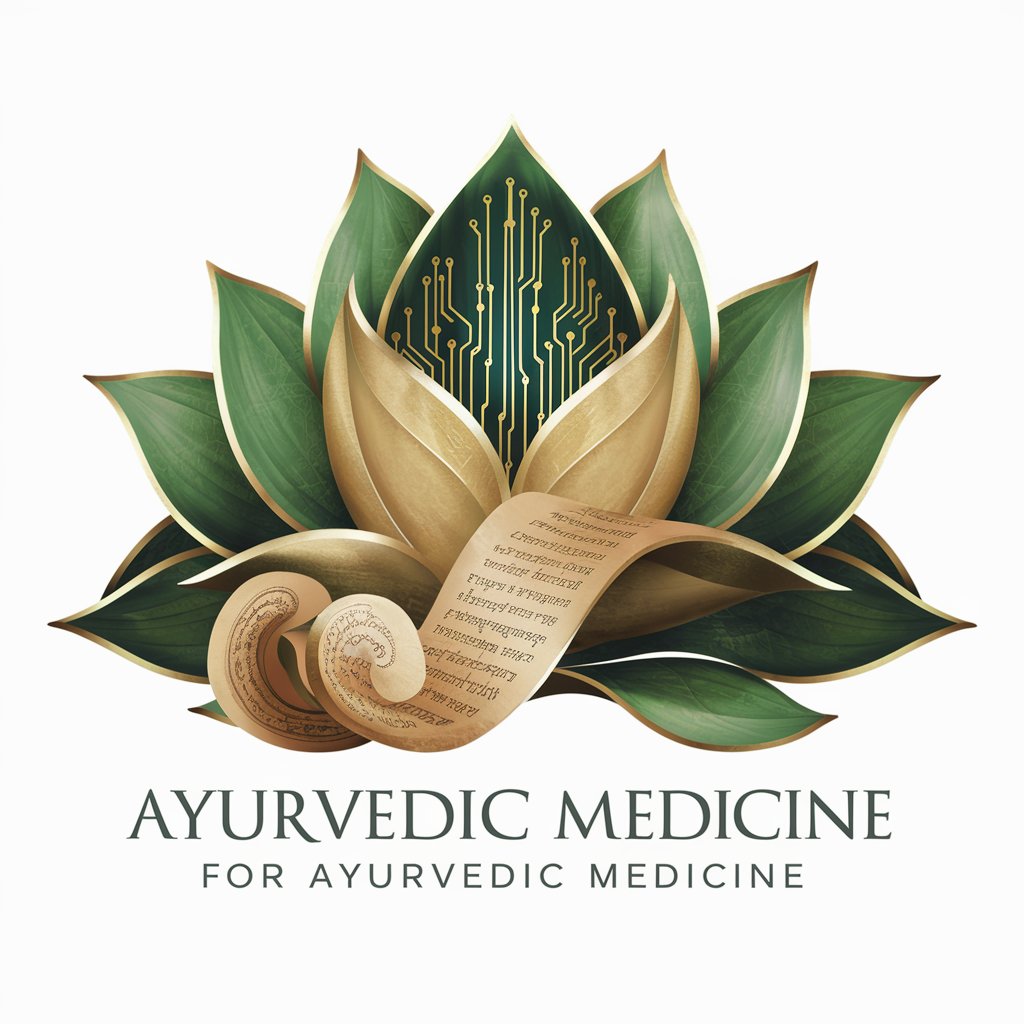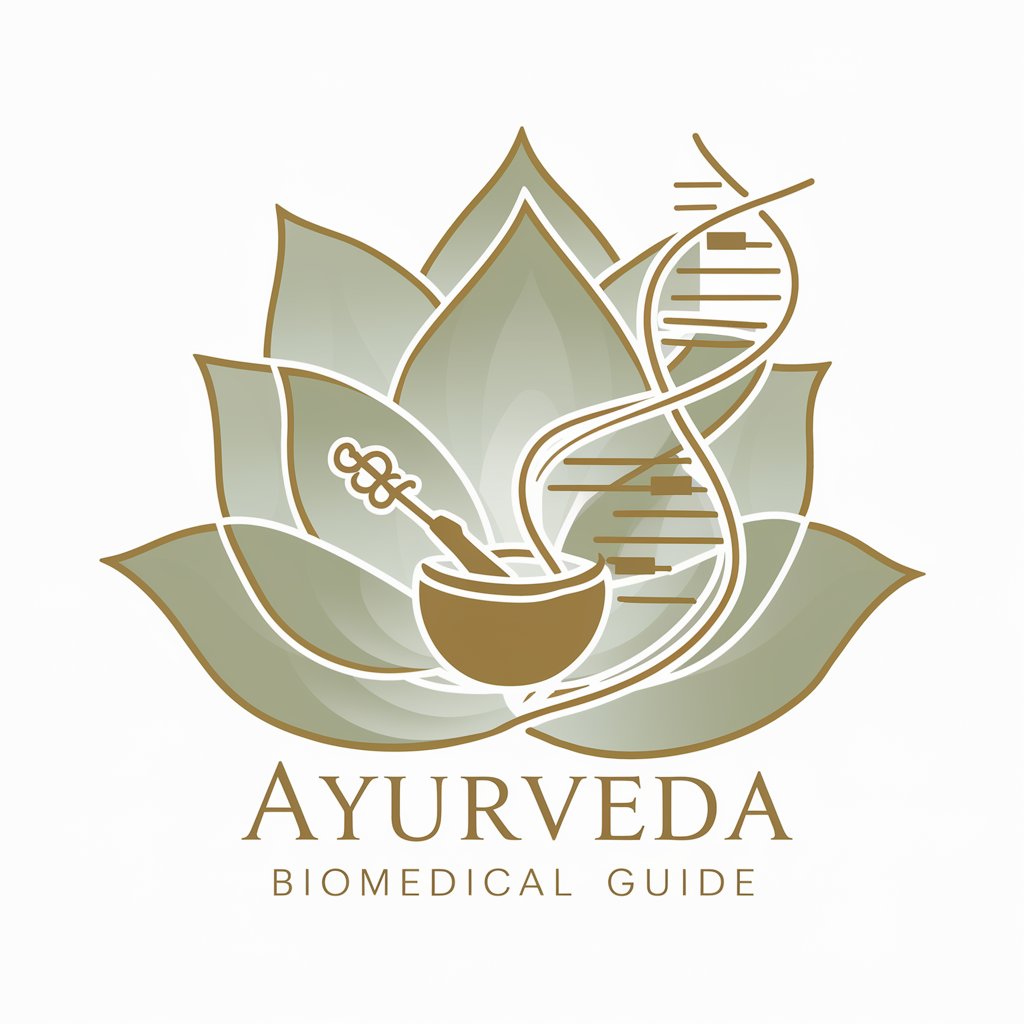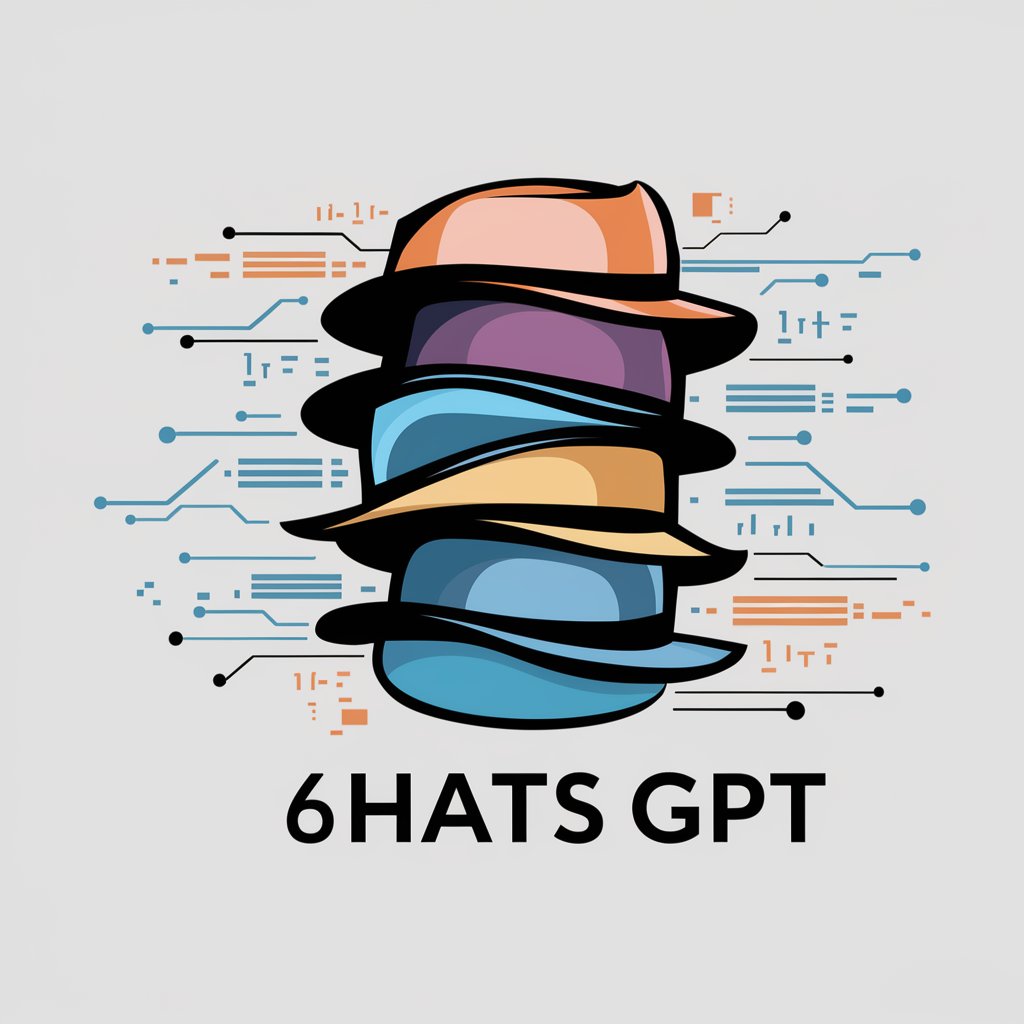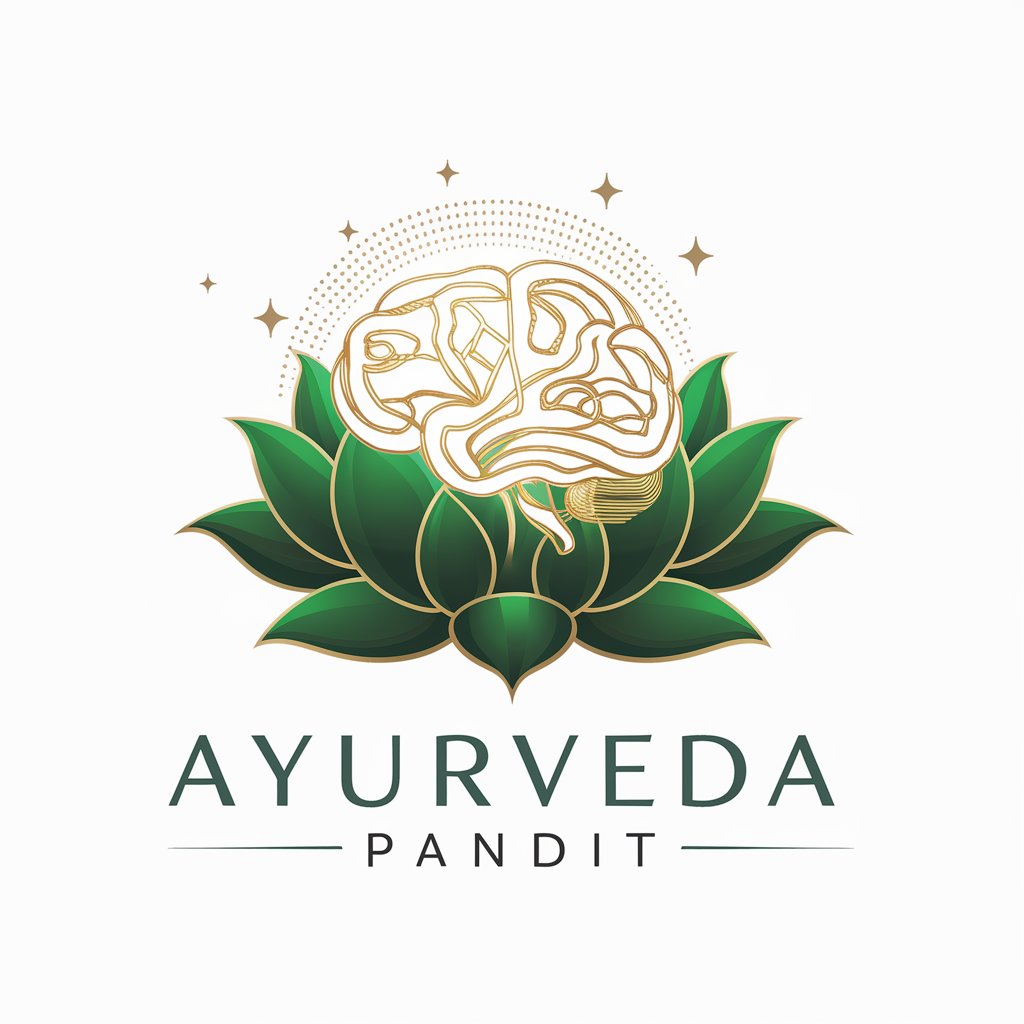
Ayurveda Guide - Ayurvedic Knowledge Tool

Welcome! Let's explore the wisdom of Ayurveda together.
Explore Traditional Wellness, Powered by AI
Can you tell me about the benefits of Ashwagandha in Ayurveda?
What are the traditional uses of turmeric in Ayurvedic practices?
How is Triphala typically used in Ayurvedic medicine?
What are the properties of Tulsi according to Ayurveda?
Get Embed Code
Overview of Ayurveda Guide
Ayurveda Guide is designed as a specialized tool to provide information and insights into Ayurvedic medicine, focusing particularly on the traditional uses of various herbs and substances. This GPT-based tool is crafted to enrich users' understanding of Ayurvedic practices by detailing the potential benefits, typical uses, and historical context of Ayurvedic elements. It is not designed to provide medical advice but to serve as an educational resource, emphasizing the cultural and historical significance of Ayurvedic traditions. For example, a user interested in the benefits of Ashwagandha could receive detailed information about its historical use as an adaptogen in Ayurvedic medicine, its supposed effects on stress reduction, and how it can be incorporated into daily wellness routines. Powered by ChatGPT-4o。

Core Functions of Ayurveda Guide
Herbal Insight
Example
Detailed profile of Turmeric, including its anti-inflammatory properties, usage in traditional remedies for enhancing digestion and immunity, and its role in ceremonial practices.
Scenario
A user researching natural anti-inflammatory substances could use Ayurveda Guide to explore turmeric’s applications, backed by historical data and traditional Ayurvedic texts.
Dietary Recommendations
Example
Suggestions based on Ayurvedic Doshas (body types), such as Vata, Pitta, and Kapha, advising on optimal food choices to balance each dosha.
Scenario
Someone experiencing digestive issues might consult Ayurveda Guide to understand which foods are best suited for their dosha to promote digestion and alleviate symptoms.
Cultural and Historical Context
Example
Exploration of Panchakarma, a classical Ayurvedic detoxification treatment, including its historical roots, stages of treatment, and expected benefits.
Scenario
A health enthusiast or a student of alternative medicine might use Ayurveda Guide to delve into the intricate details of Panchakarma, preparing for or enhancing their knowledge for academic or personal interests.
Target User Groups for Ayurveda Guide
Health Enthusiasts
Individuals interested in natural health practices, wellness, and preventive healthcare approaches would find Ayurveda Guide useful for integrating Ayurvedic principles into their lifestyle.
Students and Educators of Alternative Medicine
This group benefits from the detailed, historical, and practical information about Ayurvedic medicine, aiding in academic pursuits and in-depth knowledge acquisition.
Practitioners of Holistic Therapies
Professionals in fields like naturopathy, yoga, and wellness coaching can utilize Ayurveda Guide to supplement their practice with enriched Ayurvedic knowledge and advice.

How to Use Ayurveda Guide
1
Visit yeschat.ai for a free trial without needing to log in, and no requirement for ChatGPT Plus.
2
Select the Ayurveda Guide option from the available tools to start exploring Ayurvedic knowledge.
3
Enter your query related to Ayurvedic herbs, treatments, or practices in the input box provided.
4
Review the information provided, which includes uses, benefits, and historical context of Ayurvedic elements.
5
For in-depth understanding, utilize the tool regularly and explore a variety of topics to expand your Ayurvedic knowledge.
Try other advanced and practical GPTs
Ayurveda Sabio
Explore Ayurveda with AI-powered guidance

Ayurveda Biomedical Guide
Merging Ayurveda with Modern Medicine

Jesus Christ
Empowering spirituality with AI

Center of Imagination
Unlock Your Creative Potential with AI

FRARANG, Fragrance of Princess
Discover the legacy of Princess Frarang with AI

6Hats GPT
Empowering Communication with AI

Ayurveda Guru
Empowering wellness through ancient wisdom

Ayurveda Advisor
Empowering health with AI-driven Ayurvedic advice

Ayurveda Insights
AI-powered Ayurvedic product finder

GeniusMind
Empower Your Decisions with AI

Astrophysics Tutor
Unlocking the cosmos with AI-powered guidance.

Astrophysics Research Paper Summarizer
AI-powered astrophysics research summarizer.

Detailed Q&A About Ayurveda Guide
What kind of information can I find using the Ayurveda Guide?
You can discover details about various Ayurvedic herbs, their medicinal properties, typical applications, and historical significance within Ayurvedic practices.
Can Ayurveda Guide recommend treatments for specific health conditions?
While Ayurveda Guide provides general information about Ayurvedic practices and substances, it does not offer personal medical advice or treatment recommendations. Always consult a healthcare professional for specific health concerns.
How can Ayurveda Guide assist in academic research?
The tool can provide historical data, scholarly articles, and detailed descriptions of Ayurvedic practices and herbs, aiding students and researchers in gathering credible information for their academic projects.
Is the information in Ayurveda Guide verified?
Ayurveda Guide bases its responses on traditional knowledge and existing literature. However, it's always a good practice to cross-reference with up-to-date and peer-reviewed sources.
How does Ayurveda Guide help in daily life?
The tool can offer insights into daily wellness practices recommended in Ayurveda, such as dietary tips, routine management, and the use of herbs for general well-being.





